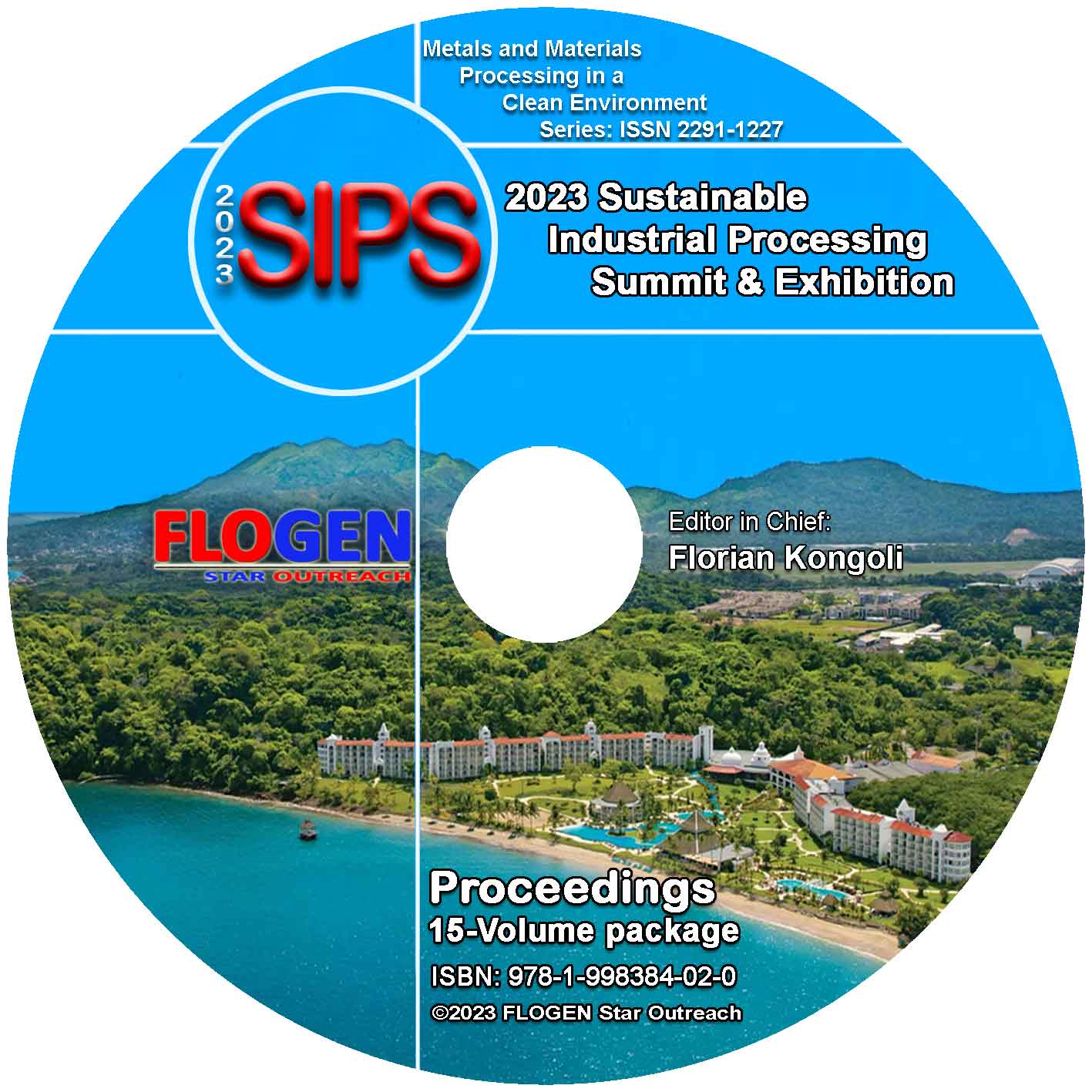2023-Sustainable Industrial Processing Summit
SIPS2023 Volume 4. Echegoyen Intl. Symp / Nanomaterials for Future Energy Demands
| Editors: | F. Kongoli, M.P. Brzezinska, M.A. Alario-Franco, F. Marquis, M.S. Noufal, E.Palomares, J.M. Poblet, D.M. Guldi, A.A. Popov, A.R. Puente Santiago, B. Raveau, D. G. Rodriguez, S. Stevenson, T. Torres, A. Tressaud, M. de Campos |
| Publisher: | Flogen Star OUTREACH |
| Publication Year: | 2023 |
| Pages: | 166 pages |
| ISBN: | 978-1-989820-78-0 (CD) |
| ISSN: | 2291-1227 (Metals and Materials Processing in a Clean Environment Series) |

CD shopping page
HYBRID L10 PHASE MAGNETIC NANOSTRUCTURES FOR SPINTRONIC DEVICES
Ovidiu Crisan1;1NATIONAL INST. FOR MATERIALS PHYSICS, Magurele, Romania;
Type of Paper: Regular
Id Paper: 232
Topic: 16
Abstract:
The formation of hybrid nanostructures in spintronic devices has been investigated as a response to specific needs especially in nanoelectronics or adjacent fields where combined optical and magnetic response to various excitations is required for various types of sensing. With the advent of high accuracy and high resolution fabrication technologies such as lithography, coupling phenomena at the nanoscale may become accessible. The integration of the magnetic and semi-conductor components adds new capabilities to the electronic devices. While spin phenomena have long been investigated within the context of conventional ferromagnetic materials, the study of spin generation, relaxation, and spin-orbit coupling in non-magnetic materials took off only recently with the advent of hybrid spintronics and it is here many novel materials and architectures can find their greatest potentials in both science and technology. Here we present initial approach to nanostructuring of hybrid patterned structures based on magnetic FePt-based bilayers, as well as their response to the optical excitation of magnetization, in view of potential applications as THz spintronic emitters. Indeed, spintronic THz emitters made of L10 phase ferromagnetic/non-magnetic bilayers, can exhibit spin-to-charge current transition, resulting in controlled and tunable THz pulse emission. This work is funded through National Recovery and Resilience Plan, research component I8 grant PNRR contract 47 / 2023, from Romanian Ministry of Research, Innovation and Digitalization.